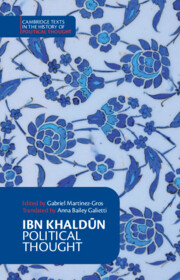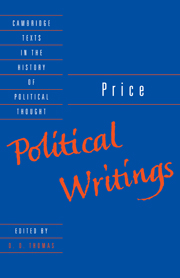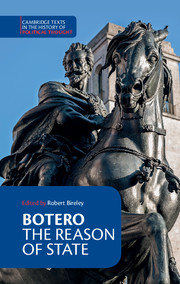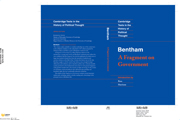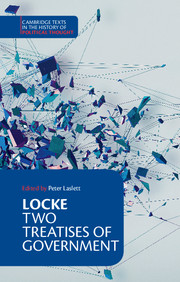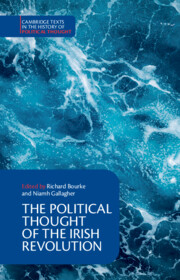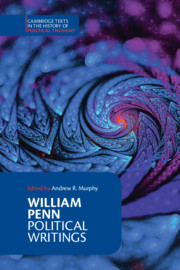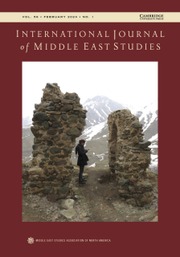Ibn Khaldūn: Political Thought
CAD$108.95 (P)
Part of Cambridge Texts in the History of Political Thought
- Real Author: Ibn Khaldun
- Editor: Gabriel Martinez-Gros, Paris Nanterre University
- Translator: Anna Bailey Galietti
- Publication planned for: January 2025
- availability: Not yet published - available from January 2025
- format: Hardback
- isbn: 9781009328715
CAD$
108.95
(P)
Hardback
Other available formats:
Paperback
Looking for an examination copy?
This title is not currently available for examination. However, if you are interested in the title for your course we can consider offering an examination copy. To register your interest please contact [email protected] providing details of the course you are teaching.
-
Ibn Khaldūn is one of the outstanding thinkers about the nature of society and politics in the pre-modern Arab world. This volume presents the political writings of the fourteenth-century philosopher, stressing their enduring relevance. Arnold Toynbee used to say that Ibn Khaldūn's work was the most impressive endeavour to build a theory out of history ever undertaken before the nineteenth century. However, translators and historians discovered Ibn Khaldūn at the time when new revolutionary economic and political conditions were dismissive of his philosophy. In this edition, Gabriel Martinez-Gros brings Ibn Khaldūn's political thought to the forefront, exploring his theories in the context of his era, but also emphasizing their profound resonances with modern society. Far from the caricature of Ibn Khaldūn as a 'tribal philosopher', Martinez-Gros shows that Ibn Khaldūn's thought is about creating wealth in an agrarian society, concerned with economic concepts, demography, war and violence.
Read more- Presents translated excerpts within their full historical, cultural and linguistic context
- Reassesses Ibn Khaldūn's thought and offers new translations of many previous misunderstood terms eg 'sedentary', 'bedouin', 'asabiya'
- Argues against the dismissive portrait of Ibn Khaldūn as a 'tribal philosopher'
Customer reviews
Not yet reviewed
Be the first to review
Review was not posted due to profanity
×Product details
- Publication planned for: January 2025
- format: Hardback
- isbn: 9781009328715
- length: 286 pages
- dimensions: 216 x 140 mm
- availability: Not yet published - available from January 2025
Table of Contents
General Introduction: Ibn Khaldūn: A Theory for Our Time?
Part I. On History:
1. History is a branch of philosophy
2. Errors to which historians are prone
Part II. On Combat Solidarities:
3. Man is a social animal
4. Bedouins are naturally courageous, much more so than sedentary peoples
5. On combat solidarities, and the conditions in which their strength declines
6. Bedouin nations are more skilled at conquest than other nations
7. As long as combat solidarities exist among members of the same nation, the monarchy will remain in that nation's control, even if power changes hands between its various branches
8. When the Arabs take control of cultivated territories, they quickly bring about their ruin
Part III. On The State:
9. States and universal dynasties are built by tribes and combat solidarities
10. A religious cause endows a nascent dynasty with force in addition to the combat solidarities derived from the number of its supporters
11. Every dynasty controls a finite number of domains and territories, which cannot be exceeded
12. It is natural for the sovereign to isolate himself in his glory, seeking peace and comfort
13. The leader of the dynasty puts his clients and those whom he has reared before his kin and his own combat solidarities
14. The caliphate
the kingdom of the Jews
and the pope and the emperor in Christendom
15. On war
16. On taxation
17. The dissolution of a dynasty
18. A nascent dynasty cannot overthrow the sitting dynasty in a single blow
victory must come in time
Part IV. Cities:
19. States precede cities and capitals
the latter cannot exist without the prior existence of the state
20. On the construction and organization of cities
21. The superiority of urban centres and cities, the prosperity of their inhabitants, and the amount of spending in their markets are based on the size of their populations
22. On prices in cities
23. Sedentary civilization is the highest and final degree of any civilization
for this reason, it is destined to decay and disintegrate
24. On military and civil functions, and their respective roles in the rise and fall of capital cities
Part V. Earning a Living
25. On the true meaning of 'subsistence' and 'profit'
commentary on these two terms
profit as the value of human labour
26. Happiness and profit generally go to those who are skilled at flattery and know when to bend the knee
27. Crafts and professions cannot fully flourish if sedentary civilization and population growth are not flourishing as well
Part VI. Sciences:
28. Sciences are concentrated in centres of high population density, where sedentary civilization is firmly entrenched
29. The categories of the intellectual sciences
30. The burden of the sciences in Islam fell primarily upon the shoulder of the Persians
31. Learning a language is like mastering any other craft
Part VII Texts from Ibn Khaldūn's Universal History
32. On the origins of the Hilālī invasions
33. Succession in Tlemcen: the assassination of the sultan Abū Ḥammū and the accession of his son, Abū Tāshfīn (1318)
34. The history of the kingdom of Granada (1238–1492)
35. A short history of Islam.
Sorry, this resource is locked
Please register or sign in to request access. If you are having problems accessing these resources please email [email protected]
Register Sign in» Proceed
You are now leaving the Cambridge University Press website. Your eBook purchase and download will be completed by our partner www.ebooks.com. Please see the permission section of the www.ebooks.com catalogue page for details of the print & copy limits on our eBooks.
Continue ×Are you sure you want to delete your account?
This cannot be undone.
Thank you for your feedback which will help us improve our service.
If you requested a response, we will make sure to get back to you shortly.
×
